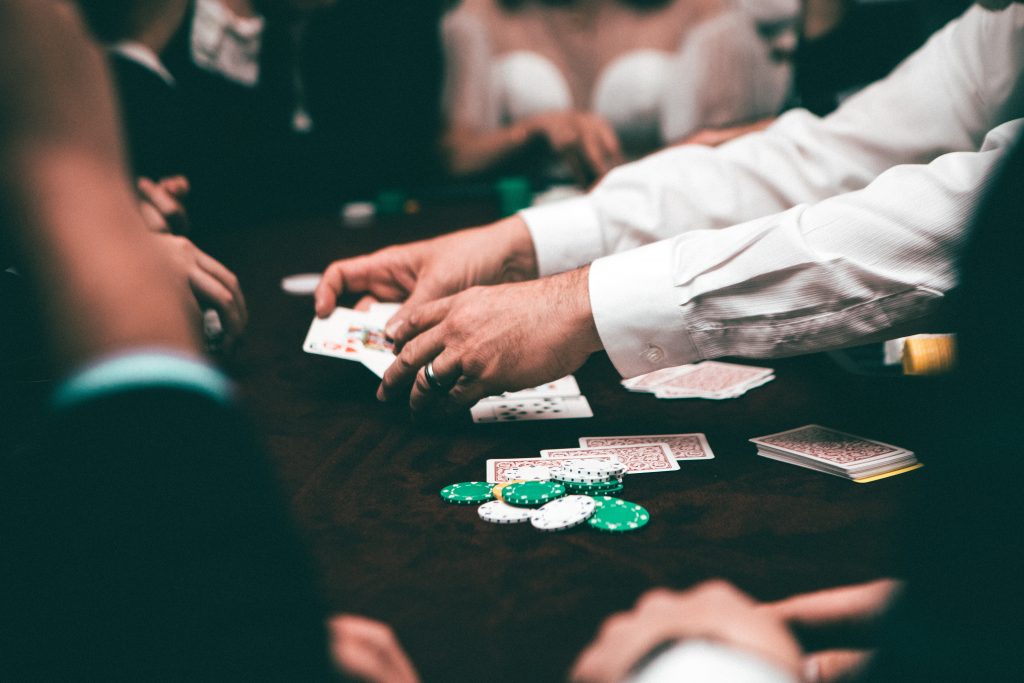Given the cryptocurrency & NFT implosions over the past few months (including various exchanges going bust and locking out customers from their accounts, values crashing, scams etc), I’ve read and heard people using the phrase “the bigger the risk, the bigger the reward” more than usual. I think it’s worth examining it a little as I think it’s used to justify decisions and behaviour that don’t seem grounded in proper financial consideration. Both “the risk” and “the reward” need to be considered as I’m not sure either are accurate ways of looking at the decisions this phrase justifies.

The Risk
Risk is an interesting word in English as it’s not particularly specific. What constitutes a risk is hugely subjective. In finance there are two forms of investment risk – volatility and complete loss. These are two completely different things and represent the differences between sound investments and speculation.
Volatility is largely an emotional risk – it’s very much the personal in personal finance. How calm have you been checking your investment balances this year? Or in 2008? Or in 2001? If you were (or are) invested into broad based index funds, hopefully you were super calm! This is because the day to day of the market is just noise for you. It’s largely meaningless. Volatility is nothing to get excited or worried about; it’s to be expected. You work on the (historically supported) assumption that the markets you have invested in will rise over time. There are many theories as to why this is, but ultimately the risk posed by volatility is not financial, it’s emotional. As long as you can stay the course, risk is largely down to whether you can stomach a spiky graph.
On the other hand, complete loss is a totally different form of risk. It’s not something you need to be concerned about when investing in index funds as a complete loss means that a market economy has ceased to exist – in which case you have far bigger problems to contend with! Complete loss is the form of risk associated with an asset that can lose all its value – individual stocks, cryptocurrency, NFTs, beanie babies etc. This is a huge financial risk when compared with emotionally enduring volatility, to the extent that a prudent investor must recognise the gulf between the two. Accepting the risk of complete loss doesn’t make you a particularly savvy investor, it makes you a speculator.
Volatility is a risk that can be lived with if you have basic financial literacy. Complete loss is not a risk that should be tolerated, particularly if you are as personally interested in the “RE” of “FIRE.” The phrase surely reflects embracing the speculative latter rather than the risk of volatility.
The Reward
Considering your own biases is important in understanding the implicit rewards in “the bigger the risk, the bigger the reward.”
The phrasing plays to your confirmation bias by disproportionately representing the upside of a risk. If we are considering the risk of complete loss, (certainly the bigger risk when compared to the risk of enduring volatility) then the statement should be rephrased as “the bigger the risk, the higher the probability your supposed asset will lose you money.” Doesn’t sound so upbeat now does it? The original phrasing is like a mental shortcut, bypassing the inconvenient truth that the risk of being wiped out is more likely than the reward. This is what an investor wants to avoid, not embrace! It justifies poor financial behaviour by cherry-picking probabilities.
Let’s, for a second, consider a situation where taking a big risk has seemingly paid off. In this case, the risk actually expands beyond loss – If you do go “to the moon” with an asset, but keep these as paper gains, you haven’t been rewarded. You’ve simply expanded your risk. Now you have confirmation bias playing an even larger part in decision making to increase the risk even further. The longer you hold this risky asset, the greater the probability of a market downswing taking you back to the same place you started. You have to combat your own bias – you were not a genius investor, you were a lucky speculator. You need look no further than the recently chastened crypto crowd to see the power of this bias. Unfortunately the risk did not turn to reward.
“But what if you sold the asset at the top of the market!” the speculators counter with. The thing is, the vast majority didn’t sell their cryptocurrency and NFTs several months ago. You can’t time the market! That pesky bias where you wanted to believe that the risk had paid off also feeds your sense that it was your actions, rather than luck, that caused it. Various news outlets have reported that the crypto market’s value has decreased by two thirds. Did everyone sell at the right time? Nope. Many are still holding, convinced that they’re buying a dip. Again, no rewards to be found.
If you bought cryptocurrency prior to a few months ago and felt like a genius based on your paper gains, you have probably now realised that rewards should be based in money, not ego. If your speculative asset went big, but you held on as it nosedived as fast as it grew you haven’t received a reward.
Some people have made money from all of this. They were lucky. Most have lost an awful lot and continue to do so. The idea of big risks giving big rewards so often rests on a fallacious consideration of the particular risk, combined with the bias of fixating on potential rewards despite the probabilities. It’s lying to yourself.